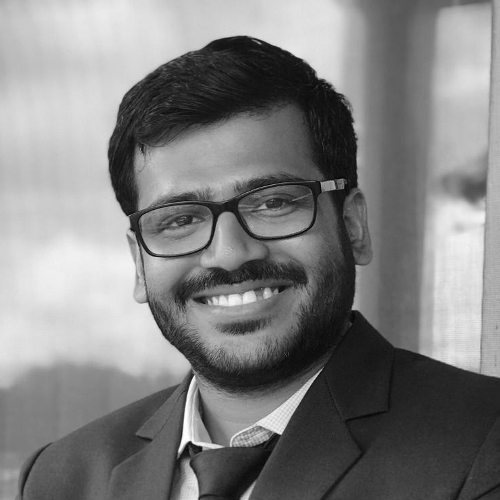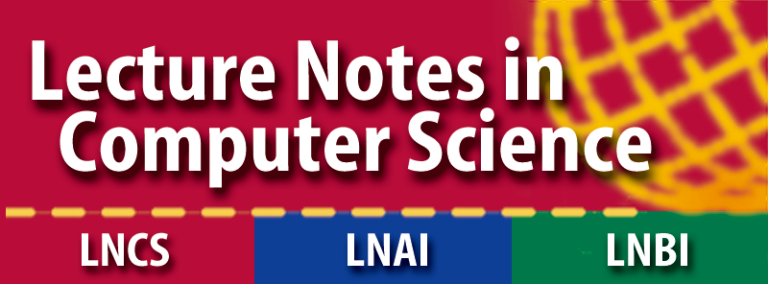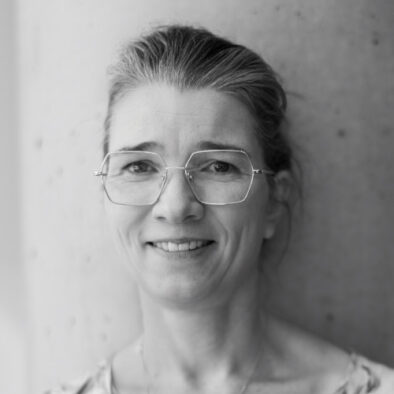WORKSHOP
SUBMISSION
WORKSHOP DAY
Friday, June 26, 2026
WORKSHOP SUBMISSION

Workshop Chair
Arnab K Paul, Birla Institute of Technology and Science, Pilani, India
Proceedings CHAIR
Erin Carson, Charles University, Prague
Workshop Deputy Chair
Francieli Zanon Boito, Université de Bordeaux, France
Proceedings Deputy CHAIR
Grey Ballard, Wake Forest University, USA
Are you interested in hosting a workshop at ISC 2026? We provide a collaborative platform for professionals within high performance computing and applied domains to come together to address, discuss, and develop solutions for specific industry challenges. You have the option to host two types of workshops.
1. Workshops with Proceedings: These focus on distributing their own call for papers and implementing a peer-review process. They have specific requirements and a submission schedule. Accepted papers will be published in post-conference proceedings. Please read the section “conference proceedings” carefully before submitting your workshop.
2. Regular Workshops: These workshops will not have their own call for papers. The organizers however are encouraged to submit a state-of-the-art review/summary paper of their workshop with at least six pages to be included in the conference proceedings. This paper should summarize the presented content and key findings of the workshop.
NEW AT ISC 2026
We offer workshop organizers with proceedings to collect and review submissions in the ISC submission platform.
INFORMATION FOR SPEAKERS
For guidance on preparing and delivering your presentation, please refer to our Speaker Manual, which provides all necessary details for your upcoming contribution at ISC.
IMPORTANT DATES
WORKSHOPS WITH PROCEEDINGS
Oct 20, 2025: closed
Submission Deadline
DEC 5, 2025
Notification of Acceptance
JAN 26, 2026
Submission of Workshop Program (Website)
April 15, 2026
List of Accepted Workshop Papers Due
May 26, 2026
Camera Ready Submission Deadline (Workshop Papers)
REGULAR WORKSHOPS
Dec 10, 2025: CLOSED
Submission Deadline
FEB 4, 2026
Notification of Acceptance
May 26, 2026
Submission of Workshop Program (Website)
July 17, 2026
Submission of a State-of-the-Art Review/Summary Paper
GENERAL INFORMATION
May 6, 2026
Early-Bird Registration Deadline
May 26, 2026
Submission of Final List of Speakers Deadline
Friday, June 26, 2026
Workshops: Half-day: 9:00 am - 1:00 pm, 2:00 pm - 6:00 pm; Full-day: 9:00 am - 6:00 pm
Word of advice for organizers of Workshops with Proceedings
You must submit a list of accepted workshop papers by April 15, 2026. We recommend setting the paper submission deadline for mid-March 2026 and notifying the authors of acceptance by mid-April at the latest, so that the speakers can benefit from the early bird pricing and you can meet the deadline for the number of accepted workshop papers.
ACCEPTED WORKSHOPS
The ISC workshops aim to offer attendees a concentrated and comprehensive forum for presentations, conversations, and engagement on a specific topic. Two types of workshops will be hosted.
ACCEPTED WORKSHOPS WITH PROCEEDINGS
Workshops focused on disseminating their own call for papers and implementing a peer-review process. These workshops have specific requirements and a submission schedule. Papers that are accepted will be published in post-conference proceedings. Please find further information on the workshop websites below.
2nd Workshop on Energy Efficiency with Sustainable Performance: Techniques, Tools, and Best Practices.
3rd International Workshop on Readiness of HPC Extreme-scaling Applications
6th Workshop on Compiler-Assisted Correctness Checking and Performance Optimization for HPC
7th ISC HPC International Workshop on “Monitoring, Observability, and Operational Data Analytics”
10th International Workshop on In Situ Visualization
12th Annual High Performance Containers Workshop
AI on HPC: Performance Engineering, Challenges and Opportunities
HPC on Heterogeneous Hardware (H3)
International Workshop on RISC-V for HPC at ISC
Seventh Workshop on Interactive and Urgent High-Performance Computing (WIUHPC)
Sixth Workshop on Communication, I/O, and Storage at Scale on Next-Generation Platforms – Scalable Infrastructures –
The Second International Workshop on Foundational Large Language Models Advances for HPC
Accepted Workshops
- 2nd Workshop on Energy Efficiency with Sustainable Performance: Techniques, Tools, and Best Practices
- 3rd International Workshop on Readiness of HPC Extreme-scaling Applications
- 6th Workshop on Compiler-Assisted Correctness Checking and Performance Optimization for HPC
- 7th ISC HPC International Workshop on “Monitoring, Observability, and Operational Data Analytics”
- 10th International Workshop on In Situ Visualization
- 12th Annual High Performance Containers Workshop
- AI on HPC: Performance Engineering, Challenges and Opportunities
- HPC on Heterogeneous Hardware (H3)
- International Workshop on RISC-V for HPC at ISC
- Seventh Workshop on Interactive and Urgent High-Performance Computing (WIUHPC)
- Sixth Workshop on Communication, I/O, and Storage at Scale on Next-Generation Platforms - Scalable Infrastructures -
- The Second International Workshop on Foundational Large Language Models Advances for HPC
TOPIC AREAS
Workshop submissions are encouraged on any ISC 2026 Topic Area.
Click on a topic area to view details.
System Architecture & Hardware Components
- Composable Disaggregated Infrastructure
- Data Center Infrastructure and Cooling
- Emerging Computing Technologies
- Energy Efficiency and Sustainability
- Extreme-scale Systems
- Heterogeneous System Architectures
- Memory Technologies and Hierarchies
- Networking and Interconnects
- Post Moore Computing
- Storage Technologies and Architectures
Programming Environments & System Software
- Compiler and Tools for Parallel Programming
- Cybersecurity in HPC and AI
- Energy Management
- File Systems
- HPC in the Cloud and HPC Containers
- Parallel Programming Languages
- Resource Management and Scheduling
- Runtime Systems for HPC
- System and Performance Monitoring
Algorithms & Performance
- Mixed Precision
- Novel Algorithms
- Optimizing for Energy and Performance
- Parallel Numerical Algorithms
- Performance and Resource Modeling
- Performance Measurement
- Performance Tools and Simulators
Applications & Use Cases
- Application Workflows for Discovery
- Bioinformatics and Life Sciences
- Chemistry and Materials Science
- Earth, Climate and Weather Modeling
- Engineering
- Geosciences
- Industrial Use Cases of HPC, ML and QC
- Physics
- Renewable Energy
- Visualization and Virtual Reality
Machine Learning & AI
- AI Applications powered by HPC Technologies
- AI Factories
- Digital Twins and ML
- High-Performance Data Analytics
- HPC Simulations enhanced by Machine Learning
- HW and SW Design for Scalable Machine Learning
- Large Language Models and Generative AI in HPC
- ML Model Optimization
- ML Systems and Frameworks
- Sovereignty in AI
Quantum Computing
- Integration of Quantum Computing and HPC
- Quantum Computing Basics and Theory
- Quantum Computing Technologies and Architectures
- Quantum Computing Use Cases
- Quantum Error Correction
- Quantum Machine Learning
- Quantum Program Development and Optimization
- Simulating Quantum Systems
COMMUNITY & HPC
- Community Engagement
- Development of HPC Skills
- Diversity and Inclusion
- Education and Training
PUBLICATIONS
The post-conference Workshop Proceedings will be published with Springer’s Lecture Notes in Computer Science (LNCS).
We will organize the proceedings in a lightweight fashion. Workshops with proceedings must submit at least three full papers of significant scientific content, with a minimum of six pages and a maximum of 12 pages per paper (including a bibliography and appendices, with two possible extra pages after the review to address the reviewer’s comments). If a workshop submits less than three papers in total, it will not be included in the workshop proceedings.
Authors should consult Springer’s Instructions for Authors of Proceedings and use either the LaTeX or the Wordtemplates provided on Springer’s authors’ page, for the preparation of their papers.
Papers that are very short (fewer than four pages) may be moved to the back matter. These papers will not be available for indexing, and they will not be individually visible on SpringerLink. However, they will be listed in the Table of Contents. Abstracts of invited talks that are not accompanied by a full paper will be included in the front matter and not in the main part of the proceedings. Submitting short papers and abstracts does not align with the concept of a workshop with proceedings.
NEW: You can use the ISC submission portal to collect and review workshop papers. If the workshop papers are to be included in the ISC workshop proceedings published by Springer, it is mandatory to use the portal. More information will follow upon acceptance.
The organizers of regular workshops are encouraged to submit a state-of-the-art review/summary paper of their workshop, with a minimum of six pages, to be included in the conference proceedings. This paper should summarize the presented content and key findings of the workshop.
Workshop organizers are also free to organize the publication of paper proceedings on their own.
Presentation Materials for Attendees
Presentation slides will be available in the event platform (Swapcard) for registered attendees.
ISC WORKSHOP PROCEEDINGS
The ISC Workshop Proceedings are available in Springer’s Lecture Notes in Computer Science (LNCS).
VIEW PROCEEDINGS 2025 - 2021
VIEW PROCEEDINGS 2020 - 2016

WORKSHOP COMMITTEE
The Workshop Committee oversees the review process and ensures the scientific quality of submitted workshop proposals.
VIEW ALL MEMBERS
- Arnab Paul, BITS Pilani, Goa Campus, India (Chair)
- Francieli Boito, University of Bordeaux, Inria, France (Deputy Chair)
- Francesco Antici, University of Bologna, Italy
- Nick Brown, Edinburgh Parallel Computing Centre (EPCC), The University of Edinburgh, United Kingdom
- Suren Byna, The Ohio State University, Lawrence Berkeley National Laboratory, United States of America
- Barbara Cantalupo, University of Turin, Italy
- George Carlisle, AlterSciences, United States of America
- Stefano Corda, Huawei Technologies AG, Switzerland
- Matthias Diener, University of Illininois Urbana-Champaign, United States of America
- Matthieu Dorier, Argonne National Laboratory, United States of America
- Lucia Drummond, Universidade Federal Fluminense, Brazil
- Marco Faltelli, ENEA, Italy
- Rafael Ferreira da Silva, Oak Ridge National Laboratory, United States of America
- Jorge Galvez Vallejo, The Australian National University, Australia
- Kaushik Kandadi Suresh, NVIDIA Corporation, United States of America
- Engin Kayraklioglu, Hewlett Packard Enterprise, United States of America
- Jonas Korndorfer, University of Basel, Switzerland
- Julian Kunkel, Georg-August-Universität Göttingen, GWDG, Germany
- Sanmukh Kuppannagari, Case Western Reserve University, United States of America
- Jay Lofstead, Sandia National Laboratories, University of New Mexico, United States of America
- Arthur Lorenzon, UFRGS, Brazil
- Ahmed Mahany Omar, New York University, Ain Shams University, United Arab Emirates
- Petro Junior Milan, SambaNova.ai, Georgia Institute of Technology, United States of America
- Sarah Neuwirth, Johannes Gutenberg University Mainz, Germany
- Ivy Peng, KTH Royal Institute of Technology, Sweden
- Mihail Popov, Inria Bordeaux, France
- Jonas Posner, Fulda University of Applied Sciences, Germany
- Szilárd Páll, KTH Royal Institution of Technology, Sweden
- Bharath Ramesh, NVIDIA Corporation, United States of America
- Kiran Ranganath, SambaNova Systems, United States of America
- Josie Esteban Rodriguez Condia, Politecnico di Torino, Italy
- Harisankar Sadasivan, AMD, University of Washington Seattle, United States of America
- Kento Sato, RIKEN, Japan
- Sougata Sen, BITS Pilani KK Birla Goa Campus, India
- Happy Sithole, Center for High Performance Computing, CSIR, South Africa
- Leonardo Solis-Vasquez, Technical University of Darmstadt, Germany
- Filippo Spiga, Nvidia Corporation, United Kingdom
- Tom St. John, Gimlet Labs, United States of America
- Suyash Tandon, Reditus Space Inc., University of Michigan, United States of America
- Ahmad Tarraf, Technical University of Darmstadt, Germany
- François Tessier, Inria, France
- Joel Tony, Microsoft Research, India
- Andy Turner, Edinburgh Parallel Computing Centre (EPCC), United Kingdom
- Soraya Zertal, Université de Versailles St Quentin en Yvelines, CEA, France
SUBMISSION GUIDELINES & TERMS
VIEW Submission Guidelines & Review Process
Submitted workshop proposals will be reviewed by the ISC 2026 Workshop Committee.
Submission Process
- Upload as a single PDF file with important items covered in the ISC submission templates: Workshops with Proceedings / Regular Workshops.
- Upon acceptance, please submit the workshop program website, which should include a URL containing general information about the workshop and its agenda. The website does not need to be finalized and can be updated with additional details before the workshop date. The ISC website will feature all workshops and provide links to their respective submitted websites.
Review Process
- Each workshop proposal will receive a minimum of 3 reviews
- Workshops will be evaluated based on originality, significance, quality, and clarity
VIEW Terms & Conditions
- By submitting a workshop proposal, you agree to organize and host the workshop in person in Hamburg.
- Please read our workshop guidelines to understand the conference organizer’s and the workshop organizer’s responsibilities.
- Workshop organizers and speakers must register for an ISC 2026 workshop pass. ISC will grant a 100% discount on one workshop pass to organizers of half-day workshops and two workshop passes to organizers of full-day workshops.
- ISC will provide meeting room facilities and basic technical equipment for the workshops. Workshop organizers and speakers must bring their presentation laptops and adapters.
- The workshop organizers will have to align their program with the workshop break schedule (morning sessions are from 9:00 a.m. to 11:00 a.m. and 11:30 a.m. to 1:00 p.m.; afternoon sessions are from 2:00 p.m. to 4:00 p.m. and 4:30 p.m. to 6:00 p.m., with coffee breaks and lunch in between). Catering during coffee and lunch breaks will be provided to all registered workshop attendees.
- ISC will promote the workshops as part of the regular conference publicity activities. However, it is recommended that workshop organizers use their channels to attract attendees to their events.
- ISC will not cover travel, accommodation, registration fees, and other such costs.
ISC Workshop proceedings
SUBMISSION GUIDELINES
Submitted workshop proposals will be reviewed by the ISC 2026 Workshop Committee.
Submission Process
- Upload as a single PDF file with important items covered in the ISC submission templates: Workshops with Proceedings / Regular Workshops.
- Upon acceptance, please submit the workshop program website, which should include a URL containing general information about the workshop and its agenda. The website does not need to be finalized and can be updated with additional details before the workshop date. The ISC website will feature all workshops and provide links to their respective submitted websites.
Review Process
- Each workshop proposal will receive a minimum of 3 reviews
- Workshops will be evaluated based on originality, significance, quality, and clarity
TERMS & CONDITIONS
- By submitting a workshop proposal, you agree to organize and host the workshop in person in Hamburg.
- Please read our workshop guidelines to understand the conference organizer’s and the workshop organizer’s responsibilities.
- Workshop organizers and speakers must register for an ISC 2026 workshop pass. ISC will grant a 100% discount on one workshop pass to organizers of half-day workshops and two workshop passes to organizers of full-day workshops.
- ISC will provide meeting room facilities and basic technical equipment for the workshops. Workshop organizers and speakers must bring their presentation laptops and adapters.
- The workshop organizers will have to align their program with the workshop break schedule (morning sessions are from 9:00 a.m. to 11:00 a.m. and 11:30 a.m. to 1:00 p.m.; afternoon sessions are from 2:00 p.m. to 4:00 p.m. and 4:30 p.m. to 6:00 p.m., with coffee breaks and lunch in between). Catering during coffee and lunch breaks will be provided to all registered workshop attendees.
- ISC will promote the workshops as part of the regular conference publicity activities. However, it is recommended that workshop organizers use their channels to attract attendees to their events.
- ISC will not cover travel, accommodation, registration fees, and other such costs.
WORKSHOPS WITH PROCEEDINGS
Workshops focused on disseminating their own call for papers and implementing a peer-review process. These workshops have specific requirements and a submission schedule. Papers that are accepted will be published in post-conference proceedings.
Accepted Workshops
- 6th ISC HPC International Workshop on “Monitoring & Operational Data Analytics”
- 9th International Workshop on In Situ Visualization
- Energy Efficiency with Sustainable Performance: Techniques, Tools, and Best Practices
- Fifth International Workshop on Computational Aspects of Deep Learning
- Fifth Workshop on Compiler-assisted Correctness Checking and Performance Optimization for HPC
- Fifth Workshop on Communication, I/O, and Storage at Scale on Next-Generation Platforms - Scalable Infrastructures -
- Fifth Workshop on Interactive and Urgent HPC
- HPC on Heterogeneous Hardware (H3)
- International Workshop on RISC-V for HPC at ISC
- The First International Workshop on Foundational Large Language Models Advances for HPC
REGULAR workshops
Workshops without a call for papers and no post-conference proceedings.
- 2nd Workshop on Readiness of HPC Extreme-scaling Applications
- 4th International Workshop on Sustainable Supercomputing
- 4th Workshop on Quantum and Hybrid Quantum/Classical Computing Approaches
- A2SD: Advancing Autonomous Scientific Discovery Workshop
- Arm HPC User Group (AHUG) at ISC 2025
- Hardware Modularity for Practical Heterogeneous HPC
- High Performance Container Workshop 2025
- HPC I/O in the Data Center
- PPP 01: First Workshop on the Pain of Parallel Programming
- QRUCH : Quantum Resources for Unified Computing Hub
- Research Software Engineering in High-Performance Computing - Tools and Techniques for Continuous Integration and Benchmarking
- SuperCompCloud: 9th International Workshop on Interoperability of Supercomputing and Cloud Technologies combined with OpenCHAMI
- The Future of Benchmarks in Supercomputing
- Trillion Parameter Consortium Workshop: Synthetic Data, Trust, and Scale when Advancing Reliable AI Models for Science

